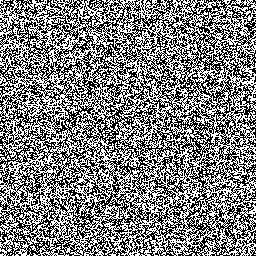In the past week, I had two long talks over zoom and tea with a librarian at University of California, Davis, a man who has started ‘tea, meditation and dialogue’ sessions online and on campus.
The conversation led to new insights, links between believing in the randomness of the universe and atheism, and between the multiverse speculation and denial of the existence of truth.
The librarian fellow is a tea connoisseur, and though I’m not, I like tea, having never acquired a taste for coffee. I was curious about his online Tuesday tea to start the day, and participated in the short ceremony last week.
The ritual begins with tealeaves (no bags of course), a bowl (not a cup), and very hot water. The four other participants had some specialty teas and a bowl, and they all were, except me ironically, outdoors.

The zoom session is advertized as “tea and meditation,” and the Tuesday ceremony is short and solemn, lasting less than 20 minutes. The librarian conducted a Japanese-like tea ritual, and guided participants in some breathing exercises, neither of which are my cup of tea.
On Friday, the tea fellow hosts a small in-person group outside the library, where he serves tea and the first ‘round’ (cup) is sipped in silence. If he and I could think together over zoom, my intent was to drive the two hours down to Davis for the Friday in-person tea/meditation/dialogue session.
At the end of our second hour-long online dialogue however, which I felt had gone well, Karl referenced a remark about truth I had made in passing during our previous talk. He questioned whether there was any such thing as “objective truth” (a term I didn’t use and don’t like, since it implies separation between the observer and the observed).
Suddenly his worldview became clear. He had likened conspiracy theories to the need to believe in God, saying both involved believing in a “super controlling intelligence.” I didn’t disagree.
However I then asked: Is there only randomness, or is there an underlying order in the universe, which isn’t pre-determinative but includes a random and creative element?
Karl emphatically replied that the universe was purely random, and that people are predisposed to see patterns, just as there is a need to believe in God and conspiracy theories.
I pointed out that the consensus among astrophysicists is that the universe is “fine-tuned” from the Big Bang, with laws that permit it to unfold and evolve as it has, from the laws of gravity, to star and black hole formation, to life itself.

Randomists, who are often dogmatic atheists, have gotten around this problem by proposing “the multiverse,” a speculative and intellectually dishonest theory that upholds randomness by maintaining our universe is but one of an infinite number of universes, the one that by chance we happen to have evolved in.
Randomists seem to fear that an acknowledgment of a fine-tuned universe (‘uni’ means one) implies that there must be a Great Designer, a Creator God that set the whole shebang in motion. However just as the laws of the universe are intrinsic, the intelligence imbuing the universe is intrinsic; no separate agency is necessary.
Dialogue, as I propose it, means finding the truth of things, such as randomness and God, through questioning together. That was too much for Karl, a rock-ribbed individualist who believes there is only ‘my perspective’ vs. ‘your perspective.’
When I pointed out that such a worldview means that there is no such thing as truth (without implying objective, fixed truth), he ended the dialogue by saying, “How do I know if the truth I’m seeing actually agrees with someone else’s?”
I responded that shared insight into ever-changing truth isn’t a matter of agreement or disagreement, which flows from the false idea that we’re separate individuals. Karl indicated he didn’t want to talk again.
Martin LeFevre

